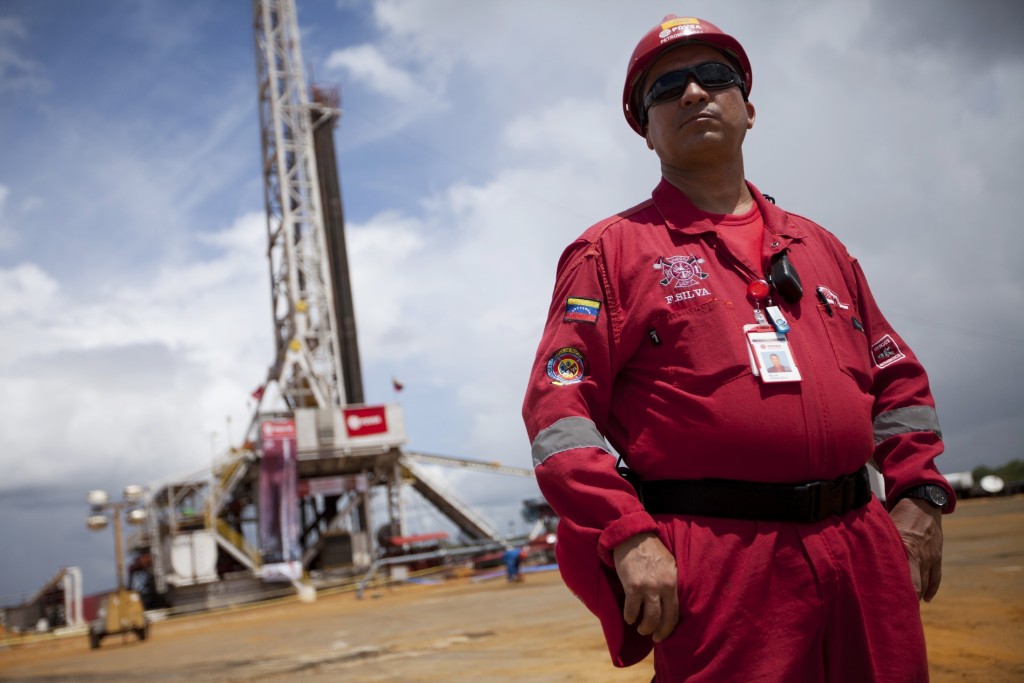Diplomatic row unlikely to quench US oil thirst
Despite the sanctions and spats over staff, Venezuela’s biggest client for crude is the United States
Tension between the United States and Venezuela, which bubbled along during the presidency of late former president Hugo Chávez, have boiled over.
Yesterday’s designation, declared through executive action by US President Barack Obama, that Venezuela was a “national security threat” and the levelling of a new set of sanctions on Caracas’ officials have taken relations to a new low. But despite the diplomatic spats, the disagreements and the vitriol aired in recent weeks, by both Venezuela’s President Nicolás Maduro and Washington lawmakers, one win-win relationship between that nations is unlikely to end.
It still remains likely that oil will keep flowing.
Venezuela has what is believed to be the second-largest proven oil reserve in the world. It’s a member of the OPEC oil cartel, one of the world’s top oil exporting nations, and through its state-oil company Petróleos de Venezuela SA (PDVSA), it covers the overwhelming majority of its government’s costs.
And despite the fall in oil prices over the past year, its huge crude reserves therefore makes it a powerful player both regionally and beyond — many Caribbean states rely on its assistance through its Petrocaribe oil alliance programme, for example.
The recent diplomatic rows between the two ideologically-opposed nations may have taken the headlines, but hidden in the anti-US rhetoric is pragmatism on both sides.
‘Most important trading partner’
The US has maintained its economic relationship with Venezuela’s energy sector, despite the turmoil. Senior Obama administration officials made it clear yesterday that his executive order did not target Venezuela’s energy sector, nor the wider economy. While the officials emphasized this is because they didn’t want to hurt ordinary Venezuelans, business also came into the equation.
The recent diplomatic rows between the two ideologically-opposed nations may have taken the headlines, but hidden in the anti-US rhetoric is pragmatism on both sides.
According to the words of the US State Department, “the United States is Venezuela’s most important trading partner,” and is among “the top five suppliers of foreign oil” to the US.
“About 500 US companies are represented in Venezuela,” the State Department continues. “US foreign direct investment in Venezuela is concentrated largely in the petroleum, manufacturing, and finance sectors.”
And it’s a two-way relationship. Venezuela imports “machinery, organic chemicals, agricultural products, optical and medical instruments, autos and auto parts” from the US. Despite the diplomatic flare-ups, it seems the two parties are unwilling to sever all relations.
Barrels per day
According to most estimates, Venezuela’s oil industry accounts for between 90 and 95 percent of the country’s exports. The drop in oil prices over the last year has severely damaged Venezuela economically — the economy is expected to contract by around seven percent this year and inflation stands at 69 percent. Protesters have returned to the streets.
And amid the crisis, oil is still just as important. That’s why Maduro headed off on a tour to other OPEC nations recently in a bid to convince them to help raise prices.
According to US Energy Information Administration, quoted by Bloomberg yesterday, the US was importing around 740,000 barrrels of oil a day in December last year. That’s a drop from around 850,000 in the same month of 2013 and 890,000 in 2012, but still very high.
It’s hard to estimate exactly how much that’s worth exactly, but prices are currently at around US$50 a barrel. A rough calculation therefore would total up to US$37 million a day, or US$1.1 billion a month. That’s a lot of money, a lot of oil, and clearly an important relationship for both.
@urlgoeshere
Originally published in the Buenos Aires Herald, on Tuesday, March 10, 2015.
Link: http://www.buenosairesherald.com/article/183947/diplomatic-row-unlikely-to-quench-us-oil-thirst-.

